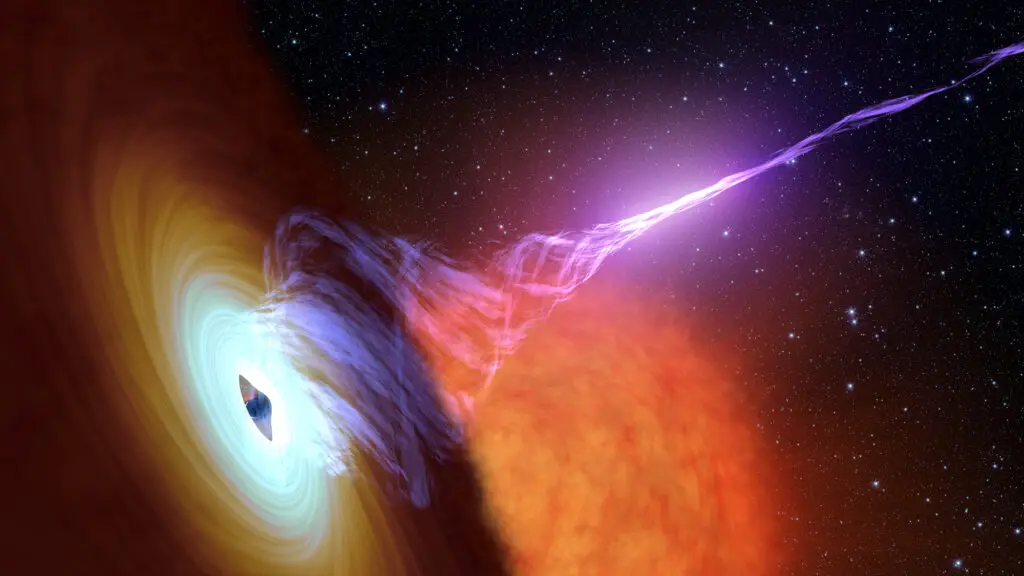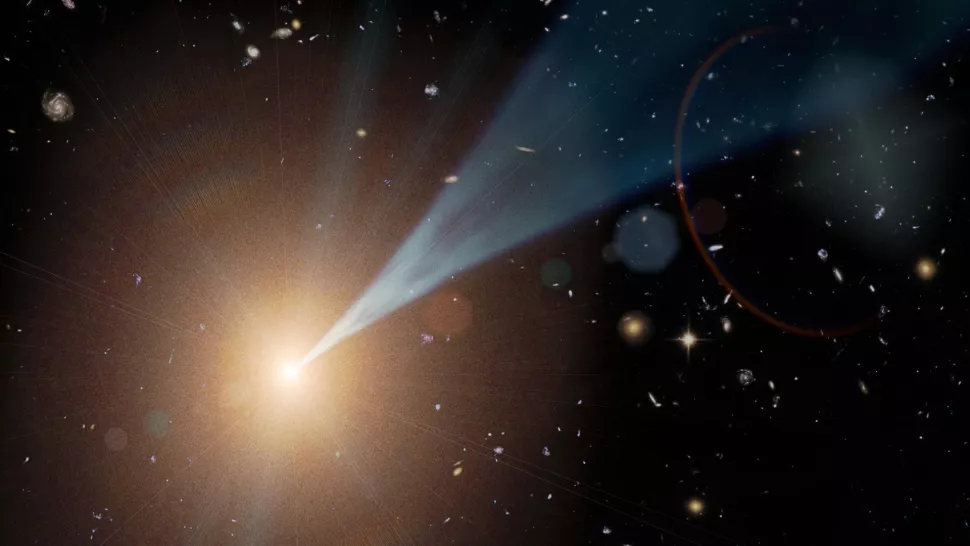In a cosmic first, a black hole just changed its direction and is now aimed right at Earth.

This fascinating event has sparked intense scientific interest and is reshaping our understanding of black holes and their behavior.
Table of Contents
The Black Hole’s Jet: A Change in Course
The black hole, located about 656 million light-years away from Earth, has a powerful jet streaming from its core. This jet, which is blasted out at light-like speeds, has “drastically” changed directions. The black hole just changed its direction in a way that is perpendicular to our line of sight, and it now faces Earth. This is a very exceptional case of jet reorientation and has led to the redefinition of the galaxy that houses this black hole.
BREAKING: A mysterious bright green flash on Jupiter was just captured by NASA
The Peculiar Properties of PBC J2333.9-2343
PBC J2333.9-2343 is a distant galaxy that spans four million light-years. It shines strongly in radio wavelengths, making it a radio galaxy. The core of this galaxy had blasted jets in the past but had long gone quiet. In the latest research, astronomers found that the core had once again stirred the jets back to life, and one of them had changed its direction.

The Black Hole Just Changed Its Direction: A New Classification
Given the sharp change in the jet’s orientation, astronomers have redefined the giant radio galaxy into one with a blazar at its center. Blazars are galaxies whose cores have jets aimed directly at Earth. This is the first time astronomers have observed a galaxy transform from one group to another, marking a significant milestone in our understanding of these celestial objects.
The Mystery of Jet Reorientation
While the black hole just changed its direction, the reasons behind such changes are not very well understood. Some astronomers speculate that mergers of galaxies or black holes contribute to the intermittent bursts of jet activity, and that the directions of the jets change between bursts. This erratic behavior of jets is also observed in bright but rare X-shaped galaxies.
Conclusion: A Cosmic First and Its Implications
The black hole just changed its direction, marking a cosmic first that is reshaping our understanding of black holes and their behavior. As scientists continue to study PBC J2333.9-2343 and other celestial objects, we can expect to gain more insights into the nature of black holes and their jets. These insights will not only help us understand these celestial objects better but also shed light on the mysteries of the cosmos.
Reference(s):

